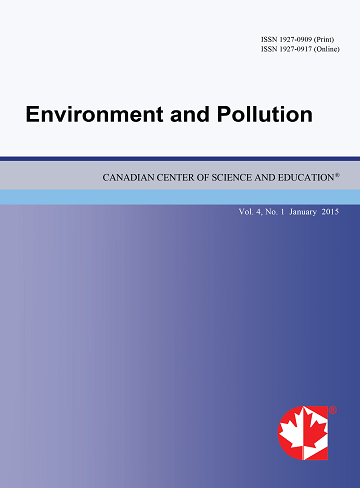Study of the Wastewater Purifying Performance in the M’Zar Plant of Agadir, Morocco
- Hind MOUHANNI
- Abdelaziz BENDOU
- Mustapha HOUARI
Abstract
In order to preserve the quality of water masses and reduce the deterioration of the natural environment, alternative water supplies should be required. The reuse of treated wastewater seems to be a good alternative in agriculture. Our study focuses on the characterization of the physico-chemical effluents (pH, EC, Turbidity, SS, COD, and BOD5) in treated wastewater of M’zar plant in Agadir during one-year cycle. It aimed to study the evolution of these parameters over five years since 2006 in compliance with discharge standards in the natural environment and concerning the safety of water for irrigation. It has been shown that the quality and quantity of wastewater depends essentially on the amount of water consumed by the population, the intensity of industrial activities and tourism according to the seasons. The removal percentage of particulate pollution and oxidizable parameters already mentioned were very satisfactory and range from an average of (97 to 99%). The rate of the Electrical Conductivity (EC) does not change between input and output of plant. The treated wastewater characterized by a high EC (between 3 and 4 dS/m) and it can be a problem for reuse in irrigation.
- Full Text:
 PDF
PDF
- DOI:10.5539/ep.v2n3p20
Journal Metrics
Index
- Academic Journals Database
- Berkeley Library
- CAB Abstracts
- CAS (American Chemical Society)
- CNKI Scholar
- COPAC
- CrossRef
- DTU Library
- Elektronische Zeitschriftenbibliothek (EZB)
- EuroPub Database
- Excellence in Research for Australia (ERA)
- Genamics JournalSeek
- Google Scholar
- Harvard Library
- Infotrieve
- Jisc Library Hub Discover
- JournalGuide
- JournalTOCs
- LOCKSS
- Max Planck Institutes
- Mir@bel
- PKP Open Archives Harvester
- Pollution Abstracts
- Publons
- Pubmed journal list
- ROAD
- Scilit
- SHERPA/RoMEO
- Standard Periodical Directory
- Stanford Libraries
- UCR Library
- Ulrich's
- UniCat
- Universe Digital Library
- UoS Library
- WorldCat
- Zeitschriften Daten Bank (ZDB)
Contact
- Albert JohnEditorial Assistant
- ep@ccsenet.org
